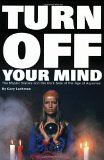Grade:
|
B+ (Difficult but mostly worth it)
|
Sentimental Value:
Current Price:
|
$99.99
14.94
|
Madness and Civilization: A History of Insanity in the Age of Reason
The sale of this book has, appropriately enough, been somewhat maddening. It's the last holdout from Foucault, and is something I feel I need to read all of. The parts I studied in school were eye-opening, especially in the way they shed light on other theories of psychology such as that of RD Laing. This is the kind of thing I would like to one day need to know, if I can ever get off my ass and get ready for grad school. I priced it pretty high though, seeing as it's the only copy of that printing for sale on Amazon.
Update 2/7:
I almost didn't make it through the first part about the transformation of the artistic representation of madness from the renaissance to the "classical age" of reason, the enlightenment. It's a slog, if you're not well-versed in the art, literature and history of the period, but I can't be bothered to sort it all out. Eventually I think I pretty much got the picture.
He traces the imagery from the pilgrimage of Bosch's Ship of Fools
to the confinement of first lepers, then, as leprosy disappeared from Europe, the mad as well as criminals and the excess human capital from the first factories (the poor), to the exhibitions of such "monsters" (derived from monstrare: "to show") for entertainment. One administrator found his colleagues had discovered an elegant moral loophole to justify the practice:
The English traveler is right to regard the office of exhibiting madmen as beyond the most hardened humanity. We have already said so. But all dilemmas afford a remedy. It is the madmen themselves who are entrusted in their lucid intervals with displaying their companions, who, in their turn, return the favor. Thus the keepers of these unfortunate creatures enjoy the profits that the spectacle affords, without indulging in a heartlessness to which, no doubt, they could never de-scend.This became useful as an additional revenue stream after the ineffectual efforts to exert corrective effects on the markets (by incorporating the inmates into a factory for useful work) devolved into a mission to break man's rebellious animal spirit and restore the divine order, based upon the collective acceptance of the curse of human labor. Kind of the same way the Soviets went down.
It makes me wonder what influence the instruments of control developed in the houses of confinement may have had on the methods used by other organizations, based on the training at the last job I had.
It was at a warehouse for a large online retailer. I had to leave after two days. Actually, it's what inspired me to open my bookstore. Now they fulfill my orders, instead of the other way around.
You know those dreams where you're back in college/highschool? The training was like that, except you keep regressing until you're like, "I know I went to Princeton, dammit. What in blazes am I doing in Kindergarten, man?"






